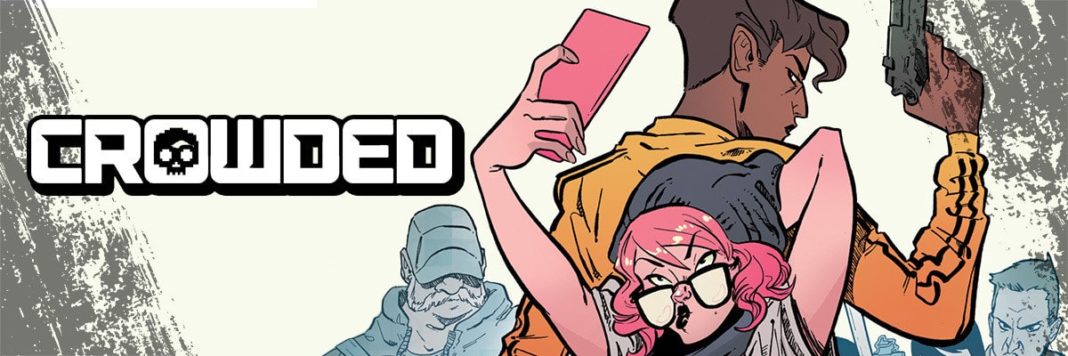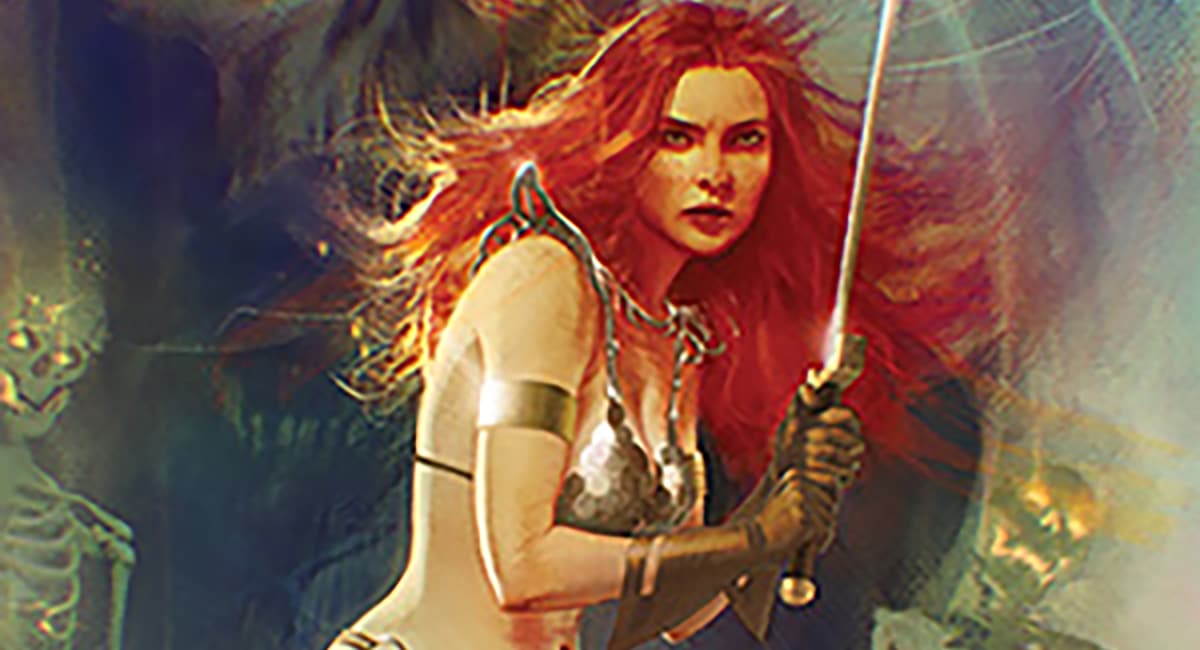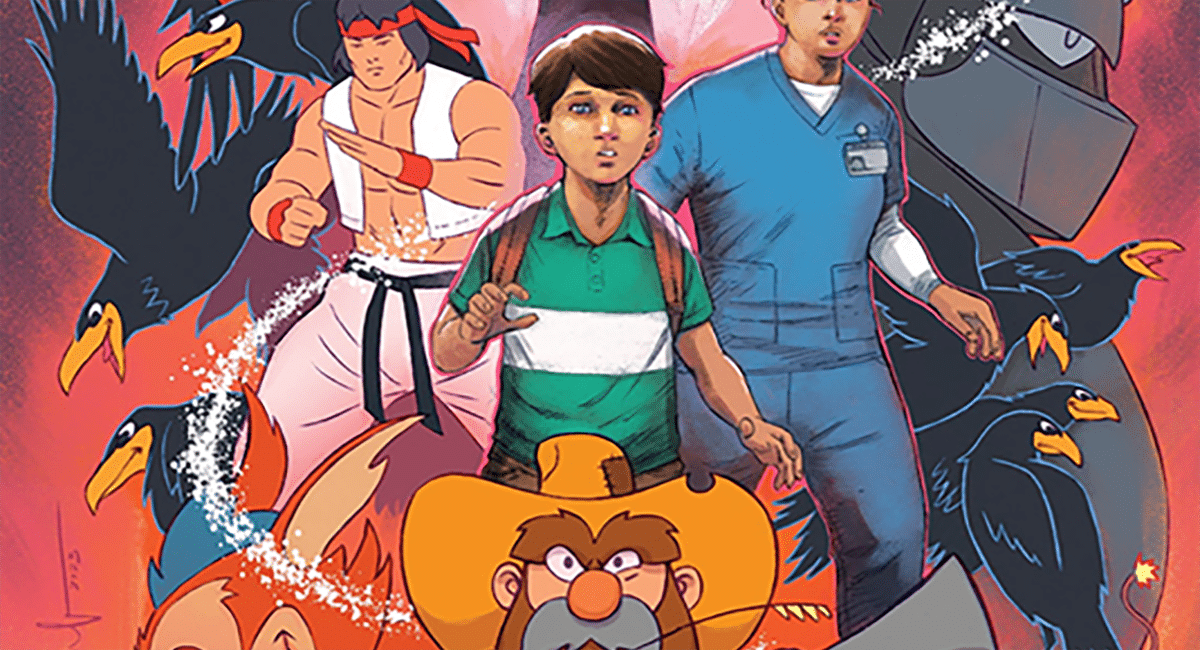Christopher Sebela tweeted this past Thursday that he was thinking of starting up a mentorship for aspiring comics writers, and The Beat had the chance to chat with him about this new program. He talks about how he decided to take up a teaching role, what he hopes to accomplish with this program, and his approach to educating a new generation of writers.
in tandem with the Two Headed Press pivot, I'm going to be figuring out how to structure this but I'd like to do something like a mentorship thinger for new writers/creators who might need a resource to give crit, answer questions and explain procedures no one tells you about
— Christopher Sebela (@xtop) May 16, 2019
Hussein Wasiti: How did you decide to start this mentorship program? Was there an inciting incident or was it something you’ve been wanting to do?
Christopher Sebela: I decided, the way I do most things, on a whim, primarily. I’d been toying with the idea for a while now in theory and mostly it was a couple things. After a fallow period, I asked the remaining members of Two Headed Press, which we’d started as a collective of sorts, if I could just have it. So I guess that kicked me in the butt a little of like, okay, now I have an imprint that is officially mine: what do I do with it? The other was seeing stuff like Jen Bartel offering her mentorship program for FlameCon and some chatter online about missing informative columns written by pros about what the industry sausage-making is really like. And I didn’t wanna do that exact thing, but I wanted to do something like that, with just a couple people. Mostly, I wanted to be some kind of helping hand in an industry that is very easy to feel like you’re never going to break into.
Wasiti: What does this mentorship entail?
Sebela: I’m trying to keep it low-key and treat it as a short-run class, in the model of the DC Writer’s Workshop I took part in that Scott Snyder taught. Not that I’m anywhere near Scott’s level on most levels, but that class was helpful to me in clarifying what exactly I wanted out of comics and what I could do to up my game as a writer. So I want to do something similar to that. I want to give [criticism] on scripts and give advice about how to write an effective pitch or how to network without seeming like a remora on a shark. Just basic stuff, I think, but I’m willing to dive down whatever rabbit hole the people in the program want to go down. It’s still coalescing, so I think once I go through the first Pilot Program, then I’ll have a better idea of what works and what I can lose.
Wasiti: Does this mentorship speak to the creative or the business side of being a comics creator?
Sebela: Ideally both. I think the focus first and foremost should be on the creative, no one should be going into comics because they wanna get rich. But you’re doing yourself and whatever career you envision as a creative a disservice if you don’t think about the business stuff. It’s the least fun part of the job, but that’s why they still call it a job, even if you’re having fun 90% of the time. I’ll go where the room wants to go, I’ll talk about my page rates and page rates of collaborators (anonymously), I’ll talk about all the stuff in comics that sucks hard, if they want to. I guess I want to try and paint as complete a picture of all the weird bits of comics no one teaches you about, you experience them and then you know. Maybe since I’ve experienced a decent amount of stuff, I can finally use it to help someone not experience it?
Wasiti: Is this a writers-only mentorship or is it open to all kinds of creators?
Sebela: The idea was mostly for writers since some of my thinking came from the idea that there’s not really such a thing as a portfolio review for aspiring comics writers and how would you even do such a thing? And you can’t, without a lot of pre-prep, so this is how I’m bridging the gap, trying to do a series of these groups where I can do my best to give pointers I think might be useful. My friend and co-creator on Heartthrob, Robert Wilson IV, has been doing a series of New Creator Breakfasts at [Emerald City Comic Con] for the past two years and that’s open to writers and artists, so I’m trying to be open like that and be as helpful as I can to anyone trying to get into whatever part of comics they want to get into.
Wasiti: You tweeted about this initially on Thursday. How far along is the project and when do you think you would roll it out?
Sebela: I’ve mostly been coordinating the responses I’ve gotten and trying to figure out the logistics like group size and lesson plans, for lack of a better phrase. It’s still early days and a lot of it is up for internal debate, but I’m aiming to get it started within the next month or so, depending on how chaotic my life gets.
Wasiti: Are you looking for published or unpublished creators?
Sebela: Whoever, really. I’m definitely not going to exclude someone for being published, because I know what it’s like to be published and still have zero idea of what you’re doing or how to turn that one book you carry from show to show into a gateway into doing more books with publishers or on your own without going broke or melting down from frustration.
Wasiti: How many applicants have you heard from so far? What’s the mix between published and unpublished creators?
Sebela: I’ve gotten somewhere north of 40 people so far and it’s a pretty healthy mix of the two so far. Which is good, because ideally this dynamic works in a way that the Writer’s Workshop I was part of did. It sort of bonded me with the rest of the people in the class and built this whole new network of peers I can turn to to talk about comics stuff. I’m not the most extroverted person in the world, so structured interaction has been useful for me. I’m not trying to create some kind of LinkedIn, but something like this helps get the ball rolling for some folks in the same boat.
Wasiti: I’m curious, any word on an official name for the mentorship? Is it Pilot Program?
Sebela: I think I might call it that for the foreseeable future, since comics as a whole feels like a pilot program a lot of the time. You encounter some problem you’ve never seen before, maybe you lose some elevation and just avoid crashing into a mountain, or you slam right into it and have to figure out how to get back to the airport. There’s a lot of potential comparisons I could dig up in this scenario to make it fit. Ultimately, it’s not like I’m going to turn this into a Tony Robbins seminar, so the branding is pretty tertiary to getting something together that helps answer questions for people who aren’t sure what questions they should be asking.








